
Conjugation of ATG8 to vacuolar membranes as a response to cell wall damage
Plant Science Research WeeklyATG8 is a well-characterized protein involved in autophagy that binds to the double-membrane enclosed phagophore. In a new preprint, Julian et al. explore their finding that ATG8 binds to the single-membrane enclosed vacuolar membrane (tonoplast). They observed that this binding is enhanced by treatments…
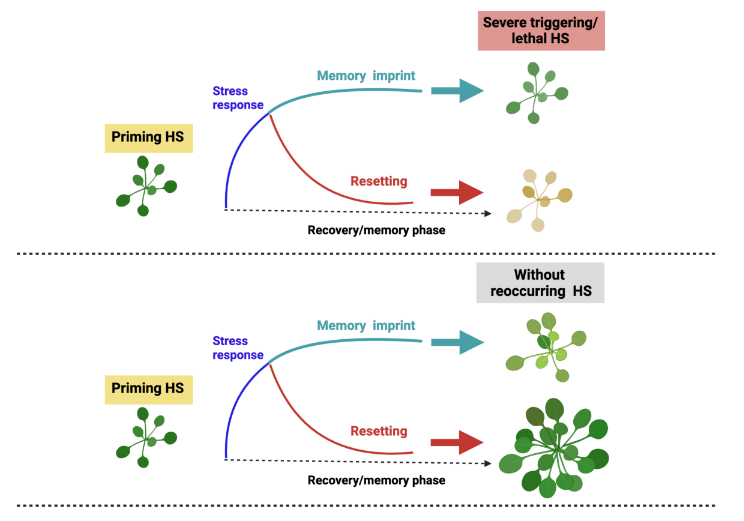
Review. Autophagy: A key player in the recovery of plants from heat stress
Plant Science Research WeeklyPlants have a remarkable ability to adapt to stress. For many stresses, plants respond to short-term mild exposure by becoming more tolerant to subsequent harsher stresses that would otherwise be lethal; this effect is known as priming. Priming occurs through several mechanisms that can include changes…

Autophagy regulation by HLS1-mediated acetylation
The Plant Cell: In a NutshellHuang et al. explore the molecular mechanism underlying the regulation of autophagy by HLS1.
https://doi.org/10.1093/plcell/koad252
By Li Huang, Xing Wen, Lian Jin, Huihui Han, and Hongwei Guo
New Cornerstone Science Laboratory, Institute of Plant and Food Science, Department of Biology,…
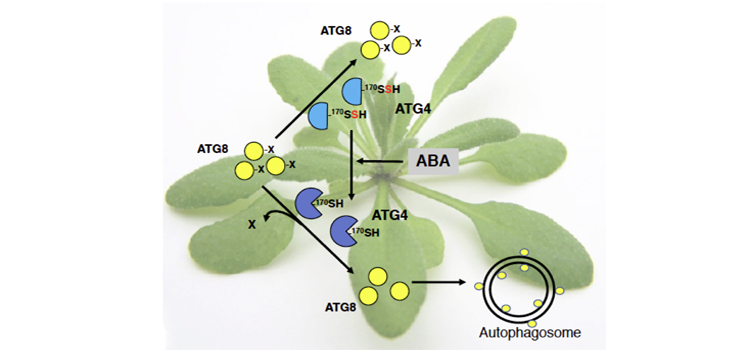
Selective autophagy of THOUSAND GRAIN WEIGHT 6 protein
Plant Science Research WeeklyRice is a globally important crop, therefore increasing yield without compromising quality is of much interest. A reduction in the amount of the TGW6 (THOUSAND-GRAIN WEIGHT 6) protein is associated with improved grain yield and quality in rice. However, we do not fully understand how TGW6 protein levels…
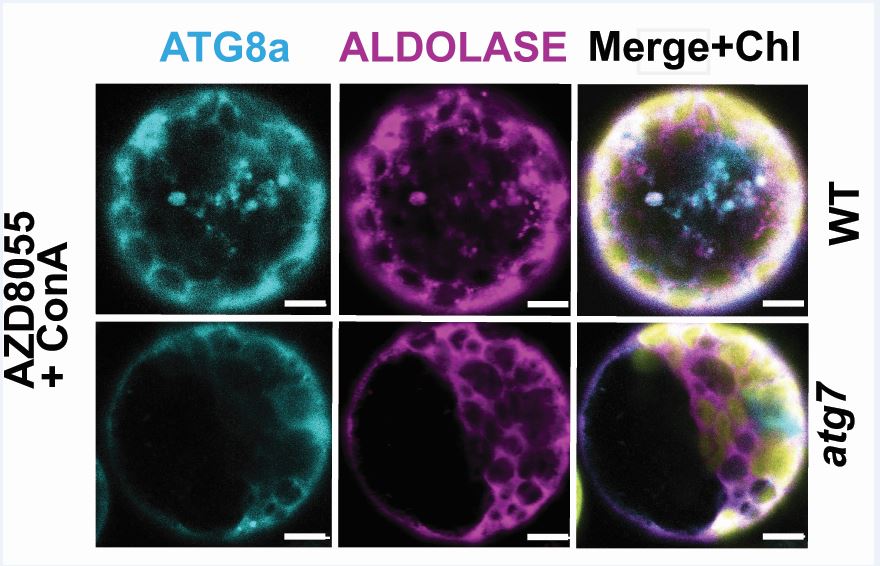
Discovering autophagy protein cargo by protein turnover analysis in Arabidopsis
The Plant Cell: In a NutshellLi et al. explore the nature of proteins that accumulate in mutants deficient in autophagy machinery.
Plant Cell
Lei Li1,2 and A. Harvey Millar2
Frontiers Science Center for Cell Responses, Department of Plant Biology and Ecology, College of Life Sciences, Nankai University, 300071 Tianjin,…
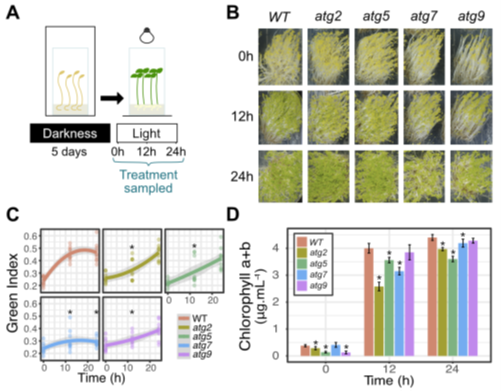
Autophagy promotes photomorphogenesis during seedling development (bioRxiv)
Plant Science Research WeeklyAutophagy is an intracellular evolutionarily conserved catabolic process that degrades cytoplasmic constituents and organelles in lytic vacuoles (micro- and macro-autophagy) or in the cytosol (mega-autophagy). Autophagy can be induced by biotic or abiotic stresses, sugar, carbon and nutrient starvation…
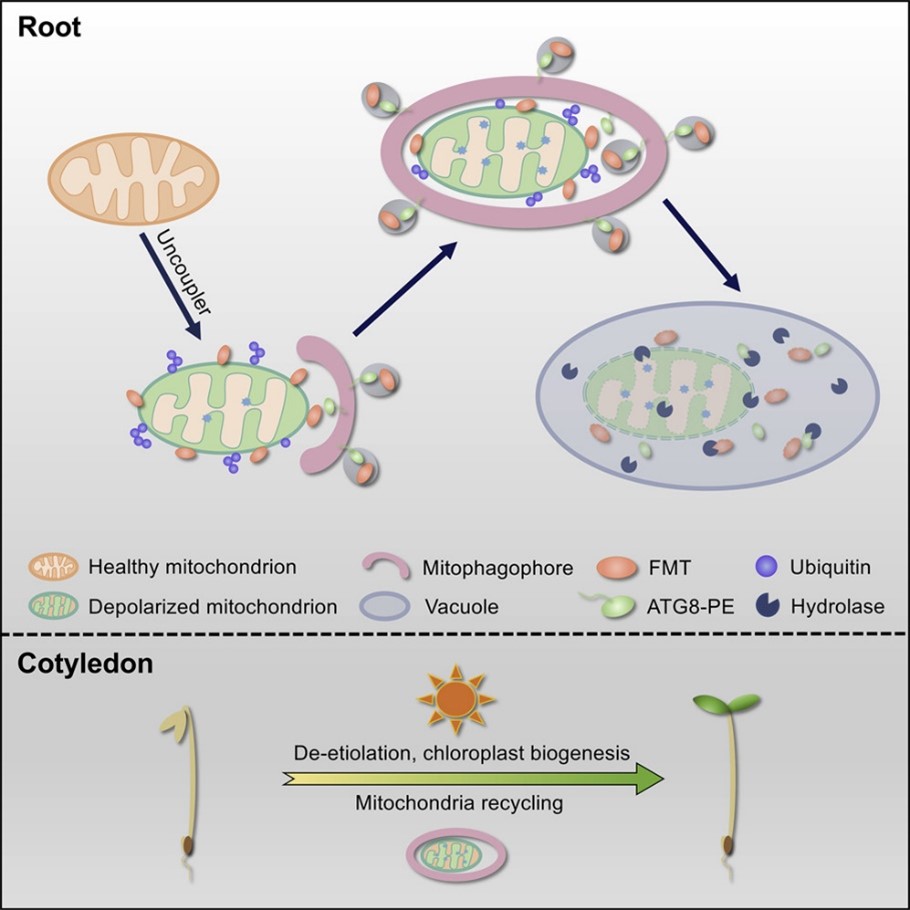
A clustered mitochondria family protein mediates the plant mitophagy (Curr. Biol.)
Plant Science Research WeeklyMitochondria function as cellular powerhouses to generate energy via oxidative phosphorylation and facilitate the synthesis of essential macromolecules. To protect against proteotoxic stress, damaged mitochondria are selectively removed by autophagy via a process known as mitophagy. In mammalian cells,…
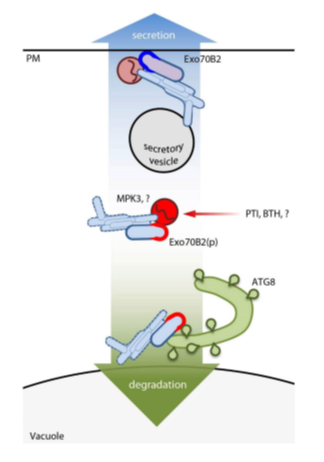
Exo70B2 functions as a exocyst subunit in secretion linked to immunity and autophagy (Plant Cell)
Plant Science Research WeeklyThe exocyst is a conserved protein complex that mediates tethering of secretory vesicle to the plasma membrane prior to SNARE-mediated membrane fusion. Exo70 is one of eight subunits and has expanded into 23 homologs in Arabidopsis. Brillada and Teh et al. identified Exo70B2 as a bona fide exocyst subunit…

Persulfidation of ATG4 negatively regulates autophagy
Blog, Research, The Plant Cell, The Plant Cell: In a NutshellAna M. Laureano-Marín, Ángeles Aroca, et al. explore the role of persulfidation in the regulation of autophagy. Plant Cell https://doi.org/10.1105/tpc.20.00766
by Cecilia Gotor, Ana M. Laureano-Marín, Ángeles Aroca
Instituto de Bioquímica Vegetal y Fotosíntesis, Consejo Superior de Investigaciones…

